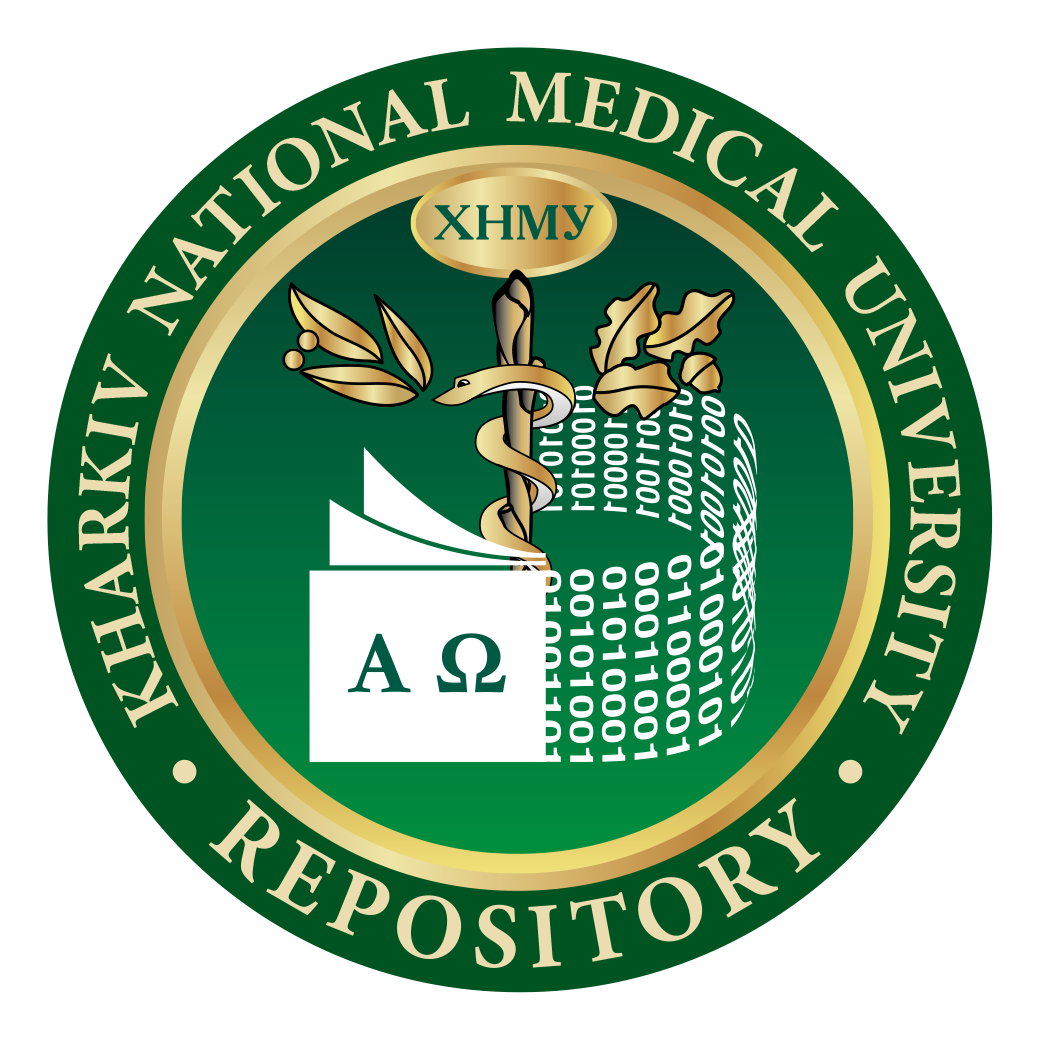105 results
Search Results
Now showing 1 - 10 of 105
Item Investigation of the properties of the oral liquid and polymorphism of the muc5b gene in children with cystic fibrosis(Kharkiv National Medical University, 2020-03) Nazaryan, R.; Tkachenko, M.; Volkova, N.Item Antibiotic therapy in the complex pathogenic treatment of patients with sialolithiasis in the stage of exacerbation of chronic sialoadenitis(Pharmacologyonline, 2021) Nazaryan, Rozana; Yaroslavska, Yuliia; Mikhailenko, Nina; Kuzina, Viktoriya; Sychova, LudmilaThe issue of complex treatment of patients with chronic sialoadenitis and sialolithiasis in the stage of exacerbation and in the presence of purulent exudate remains relevant to this day. The purpose of this study was to evaluate the antimicrobial efficacy of the combination of amoxicillin + cloxacillin + Lactobacillus sporogenes (ACL) complex in patients with chronic sialoadenitis and sialolithiasis in the stage of exacerbation of the disease and in the presence of purulent exudate. Two groups of patients, depending on the antibiotic therapy received with signs of purulent exudation from the excretory ducts of the affected glands. Diagnoses were established on the basis of clinical, laboratory (clinical blood assay; type II immunological blood test, immunoenzymatic assessment of blood serum to detect specific antibodies of the secondary immune response to mumps and cytomegaly viruses), sialosonographic and X-ray studies. The effectiveness of ACL complex effectiveness was evaluated using clinical and microbiological methods, as well as in comparison with the clinical effectiveness of erythromycin. The data of microbiological and clinical studies carried out after treatment with ACL complex indicate that it effectively acts in the presence of purulent inflammation in the large salivary glands and restores the natural ratio of microorganisms in the excretory ducts of the affected salivary glands. In addition, the results of a clinical study made it possible to note that ACL did not cause side effects and allergic reactions and can be used in patients with immunopathological conditions secondary to persistent viral infection.Item Спосіб хірургічного лікування дистопії нижнього третього моляра у дітей(Укрмедпатентінформ, 2020) Назарян, Розана Степанівна; Одушкіна, Наталія Вікторівна; Шевчук, Віктор Альбертович; Піонтковська, Оксана Володимірівна; Кривенко, Людмила Станіславівна; Ткаченко, Марина ВікторівнаItem Importance of antimicrobial factors for microbiocenosis and local immunity of the oral cavity in children with mucoviscidosis(2022) Khmiz, T.; Tkachenko, M.; Kovalenko, N.; Bocharova, T.; Bondarenko, A.; Shevchuk, V.; Odushkina, N.; Nazaryan, R.; Gargin, V.The involvement of commensals and opportunistic pathogens and the role of protective mechanisms in the development of dental diseases in children with cystic fibrosis require more detailed study. The aim of the study was to determine the ecological characteristics of the oral microbiota and some antimicrobial factors of saliva in children with mucoviscidosis. Materials and methods. The study involved an assessment of oral microbiota as complex ecological system that protects the human body from colonization by pathogenic flora in children with cystic fibrosis. Bacteriological studies have been performed on clinical material from 30 children with mucoviscidosis diagnosed with dental and periodontal diseases. Results. In the microbiological study of plaque microbiota, 70 strains of opportunistic pathogens were isolated in patients with mucoviscidosis. The most significant were alpha-hemolytic Streptococci (40%). The proportion of bacteria of Neisseria genus in patients with cystic fibrosis was lower and amounted to 24.3%. C. albicans fungi were isolated in comparable values (18.5%), S. aureus (8.5%), as well as gram-negative strains of E. aerogenes (4.3%) and E. coli (4.3%) significantly dominated. The results indicate that opportunistic pathogens S. aureus, E. aerogenes and E. coli partially replaced the representatives of the normal oral microbiota alpha-hemolytic streptococci and non-pathogenic species of Neisseria genus in patients with mucoviscidosis. Conclusions. Microbiota of plaque in children with mucoviscidosis is characterized by an expansion of the spectrum of opportunistic pathogens due to Staphylococcus aureus, enterobacteria and C. albicans fungi, which indicates a violation of the microbiocenosis due to reduced mucosal immunity. Mucosal immunity of the oral cavity in children with mucoviscidosis is characterized by a 1.5-fold decrease in lysozyme activity and the level of secretory IgA in the saliva of children.Item Intelligent visually lossless compression of dental images(Advanced Optical Technologies, 2024-02-23) Kryvenko, Liudmyla; Krylova, Olha; Lukin, Volodymyr; Kryvenko, SergiiItem Ризики нікотинасоційованих хвороб порожнини рота у дітей та підлітків з нікотиновою залежністю(2021-02) Закут, Яра Салах; Мікулінська-Рудич, Юлія Миколаївна; Мись, Вікторія ОлександрівнаItem Вплив сучасних пристроїв для паління на стоматологічний статус підлітків(2020-11-04) Тіщенко, Оксана Вікторівна; Кривенко, Людмила СтаніславівнаItem Факторы, препятствующие реализации знаний об уходе за полостью рта у студенческой молодежи(Одеська національна академія харчових технологій, 2020-10-01) Бугаев, Владислав Юрьевич; Кузина, Виктория ВадимовнаItem The dental status of foreigners from countries with the different level of primary prevention(ХНМУ, 2021-10) Mrashaha, Ahmad; Zahraoui, Salim; Kuzina, Viktoriya; Khmiz, TetyanaItem Вплив пари електронних сигарет на мікробіоценоз ротової порожнини(ХНМУ, 2021-01) Тіщенко, Оксана Вікторівна; Кривенко, Людмила Станіславівна
